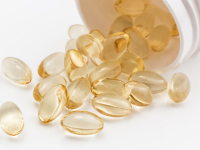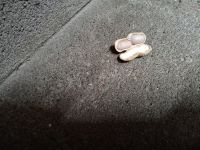
Andrzej Benkowski
Technical Manager, Probiotics & Dietary Supplements
As the Technical Manager at Eurofins Center of Excellence for Probiotics, Andrzej Benkowski brings over 18 years of expertise in biotics quality management, testing, and technology. With a strong technical background in food microbiology, Andrzej specializes in contract R&D, method development, and pioneering technologies for probiotic evaluation.
Since 2019, Andrzej has chaired the International Probiotic Association (IPA) Technical Committee and has been a member of the IPA Board of Directors since early 2024. He also contributes to the IPA Postbiotics Committee and has served as the IPA expert liaison with the International Organization for Standardization (ISO) TC34/SC9 Working Group 11 since 2022, co-convening their Enumeration Subgroup.
Andrzej is dedicated to advancing the biotics industry by setting rigorous standards and driving innovation with a focus on quality.
Outside of his professional and scientific achievements, Andrzej is a member of the Eurofins Madison Site Employee Engagement Team and manages the Community Supported Agriculture (CSA) Program for the site. A founding member of the funk band Steez, he also plays saxophone, synthesizers, and vocals. Andrzej enjoys the outdoors, spending time with his family, and pretending to be a coffee aficionado. Additionally, he has a passion for collecting sneakers and fitted hats.
Below are resources from Andrzej:
When it comes to dietary supplement testing, one seemingly small detail can have outsized consequences: specifying the correct vitamin form. Understanding and communicating the exact vitamin form in your product is not just a technical necessity, it’s a strategic imperative in ensuring accurate results, timely reporting, and regulatory compliance.
From the growing regions to the production and processing, mycotoxins pose a unique threat to the safety, quality, and marketability of coffee and spices. In this webinar, we expand upon the emerging mycotoxin risks, climate-driven contamination patterns, and the latest testing technologies to ensure compliance and protect your products. Originally Aired on November 12, 2025
A client submitted a batch of Turmeric Powder (Curcuma longa rhizome) for routine identity and quality verification. The samples were were expected to match the fingerprint of authentic turmeric reference materials. Learn how Eurofins detected detected adulteration in the client's submitted sample.
As a widely used culinary and medicinal herb, oregano is expected to meet strict botanical specifications. Read our case study to learn how Eurofins analysts used HPTLC and microscopy to uncover botanical adulteration in an oregano sample submitted for identity verification and quality assessment.
Have questions about the Eurofins ANSI 173 Finished Dietary Supplement and Ingredient Certification or Eurofins Protocol 101? Check out our guide for the answers to frequently asked questions regarding Eurofins Certification.
Discover expert insights into navigating Out-of-Specification (OOS) results and CAPA investigations. Learn key steps and strategies our technical team uses to resolve unexpected analytical outcomes effectively.
Explore a real-world OOS case study where collaborative investigation revealed formulation challenges as the root cause. Learn how targeted troubleshooting helped a client improve product consistency and manufacturing protocols.
Discover how advanced ELISA and PCR testing helped identify peanut contamination in cumin, triggering a major recall and reshaping allergen control practices across the spice industry. Learn how Eurofins GeneScan supported targeted recalls and supplier investigations to protect consumers and restore brand trust.
Discover how a leading plant-based food company partnered with Eurofins DQCI to implement a precise calibration strategy, ensuring consistent and accurate protein testing across multiple production sites.
Accurate determination of creatine and its degradation product, creatinine, in raw materials and finished products is essential for quality control and regulatory compliance. This webinar will provide an overview of best practices in HPLC creatine and creatinine testing in diverse range of products, including protein powders, pre-workout formulations, beverages, and gummies. Originally Recorded on August 8, 2025












